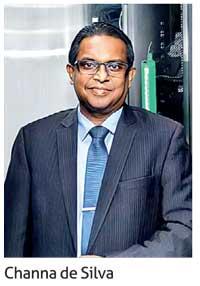07 Jun 2022 - {{hitsCtrl.values.hits}}
The stakeholders of the ICT sector yesterday called on the government to treat all those in the industry equally with regard to taxes and failing to do so could lead to a disruption in the operative environment.
The Digital Chapter of the Federation of Information Technology Industry Sri Lanka (FITIS) stressed that having different tax policies for foreign and local digital
services is unfair.
“If we don’t treat every player in the field the same way, it can create inequality, monopolies and result in heavy losses to the economy.
A viable and healthy ecosystem for start-ups and entrepreneurs to exist requires rules and regulations that ensure fair play, especially when they compete with global giants, who enter local markets,” said FITIS Digital Chapter President Channa de Silva.
To create the much sought-after level playing field, the association said foreign digital companies operating in the island nation under the local regulatory system must be liable for taxes and other regulations.
Well-known foreign digital operators handling ride-sharing and transport of goods in Sri Lanka use the road networks, fuel subsidies and state infrastructure to further their businesses and still have an unfair advantage over their taxpaying local
counterparts.
“Foreign players have enjoyed this tax-free haven for many years. These operators, by refusing to register as local entities, do not follow any of the laws of Sri Lanka and avoid paying local taxes. They are labouring under the misapprehension of not being liable to pay taxes in areas they operate, outside their country of origin,” pointed out de Silva in a statement to the media yesterday.
A step in the right direction in this regard is to start acknowledging that there is no level playing field between international digital companies and local companies, businesses and start-ups, FITIS said. At present, international digital players in Sri Lanka are exempt from paying taxes, whereas local enterprises that offer the same services are subject to taxes. In fact, the entities will be paying higher taxes in the current economic crisis. “Taking steps to bring in regulations to tax non-domiciled businesses is no longer a choice but a necessity. Apart from guaranteeing a level playing field and equal opportunity for local digital players, this will save us the much-needed dollars necessary to sustain the people of this country,” de Silva said.
09 Nov 2024 25 minute ago
08 Nov 2024 3 hours ago
08 Nov 2024 4 hours ago
08 Nov 2024 5 hours ago
08 Nov 2024 6 hours ago